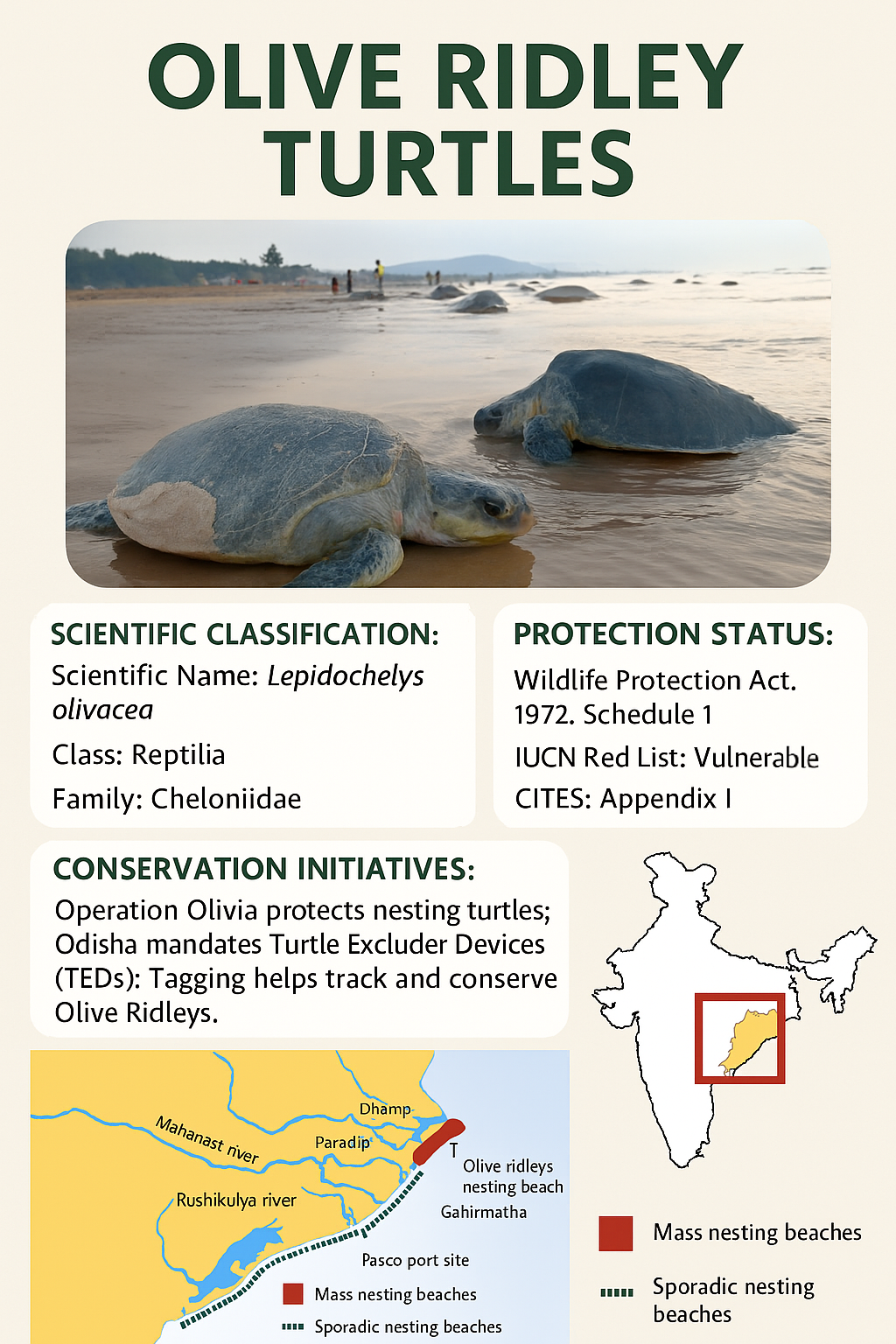Rapid Fire
Olive Ridley Turtles in India
- 12 Apr 2025
- 2 min read
A study has revealed that Olive Ridley turtles in the Indian Ocean are among the oldest in the world.
- Key Findings: Indian Ocean Olive Ridleys have survived past climate shifts, with the Atlantic and Pacific populations diverging from them around 300,000 - 400,000 years ago.
- This contradicts earlier belief that Central American turtles were the oldest due to Isthmus of Panama's formation.
- Olive Ridley (Lepidochelys olivacea): It belongs to the class Reptilia and family Cheloniidae, is the smallest sea turtle species, recognized by its olive or grayish-green color and heart-shaped carapace.
- Olive Ridleys are omnivores and exhibit arribada, a mass nesting event where thousands of females nest together.
- They migrate 9,000 km from the Pacific to Indian seas, nesting 1–3 times between December and March, and laying about 100 eggs per clutch.
- Major Nesting Sites: Gahirmatha and Rushikulya in Odisha are among the world’s largest nesting sites for Olive Ridley turtles. In 2024, over 1.3 million turtles laid eggs at these rookeries, surpassing the previous record of 1.15 million in 2023.
- Other important nesting sites in India include the Devi River mouth in Odisha and the Andaman Islands.
- Threats: Bycatch in fishing gear, poaching, habitat loss, and plastic pollution. Climate change also disrupts nesting and food availability through rising temperatures and sea levels.
- Protection Status: Wildlife Protection Act, 1972 (Schedule 1), IUCN Red List (Vulnerable), and CITES (Appendix I)
- Olive Ridleys are omnivores and exhibit arribada, a mass nesting event where thousands of females nest together.
| Read more: Mass Nesting of Olive Ridley Turtles |





